 With over 1,500 cancer centers in the United States, only a select few — less than 60 — are comprehensive cancer centers designated by the National Cancer Institute. Established in 1991, Rutgers Cancer Institute is New Jersey’s only National Cancer Institute-designated Comprehensive Cancer Center – a designation reserved for those cancer centers who meet the highest of standards in research, treatment, prevention and education and are successful in completing a rigorous review process every five years.
With over 1,500 cancer centers in the United States, only a select few — less than 60 — are comprehensive cancer centers designated by the National Cancer Institute. Established in 1991, Rutgers Cancer Institute is New Jersey’s only National Cancer Institute-designated Comprehensive Cancer Center – a designation reserved for those cancer centers who meet the highest of standards in research, treatment, prevention and education and are successful in completing a rigorous review process every five years.
Our groundbreaking cancer research is the engine that drives access to the most advanced cancer treatments including clinical trials. In partnership with RWJBarnabas Health, Rutgers Cancer Institute offers the most advanced cancer treatment options including immunotherapy, precision medicine, bone marrow transplantation, proton therapy, CAR T-cell therapy, and clinical trials - many of which are not available at other facilities across the state.
What is a Comprehensive Cancer Center?
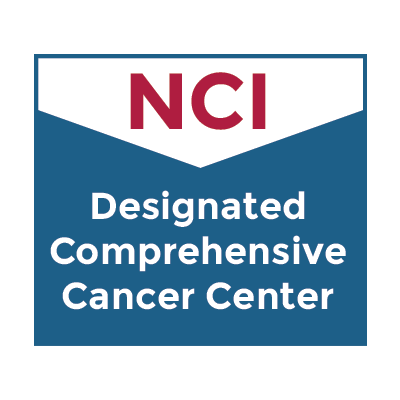
A Comprehensive Cancer Center, as designated by the National Cancer Institute (NCI), is a prestigious institution dedicated to cancer research, treatment, prevention, and education. Approximately 4% of all cancer centers nationwide hold this designation – the highest honor any cancer center can achieve. These centers are recognized for their exceptional multidisciplinary approach to tackling cancer from all angles. The NCI designation is a hallmark of excellence, signifying that a cancer center meets rigorous standards and offers the highest quality of care and research.
Designation Requirements
To attain NCI designation, a cancer center must demonstrate excellence across several key components:
- Research: Comprehensive cancer centers conduct cutting-edge research spanning basic, translational, clinical, and population sciences.
- Clinical Care: These centers provide state-of-the-art cancer treatment and care, often offering access to clinical trials and specialized therapies.
- Prevention and Control: Comprehensive cancer centers are committed to reducing the burden of cancer through prevention efforts, including screening programs, lifestyle interventions, and public health initiatives.
- Education and Outreach: These centers play a vital role in educating healthcare professionals, patients, and the community about cancer prevention, treatment options, and survivorship.
The NCI designates Comprehensive Cancer Centers every five years, subjecting them to rigorous evaluation and review to ensure they maintain the highest standards of excellence.
Achieving Redesignation
Governor Phil Murphy, leaders from Rutgers University, RWJBarnabas Health, and elected officials were all in attendance at the re-designation event. Rutgers Cancer Institute was among the top cancer centers reviewed in 2023. The NCI designation is a hallmark of excellence, signifying that a cancer center meets rigorous standards and offers the highest quality of care and research.
The Impact of an NCI Designation
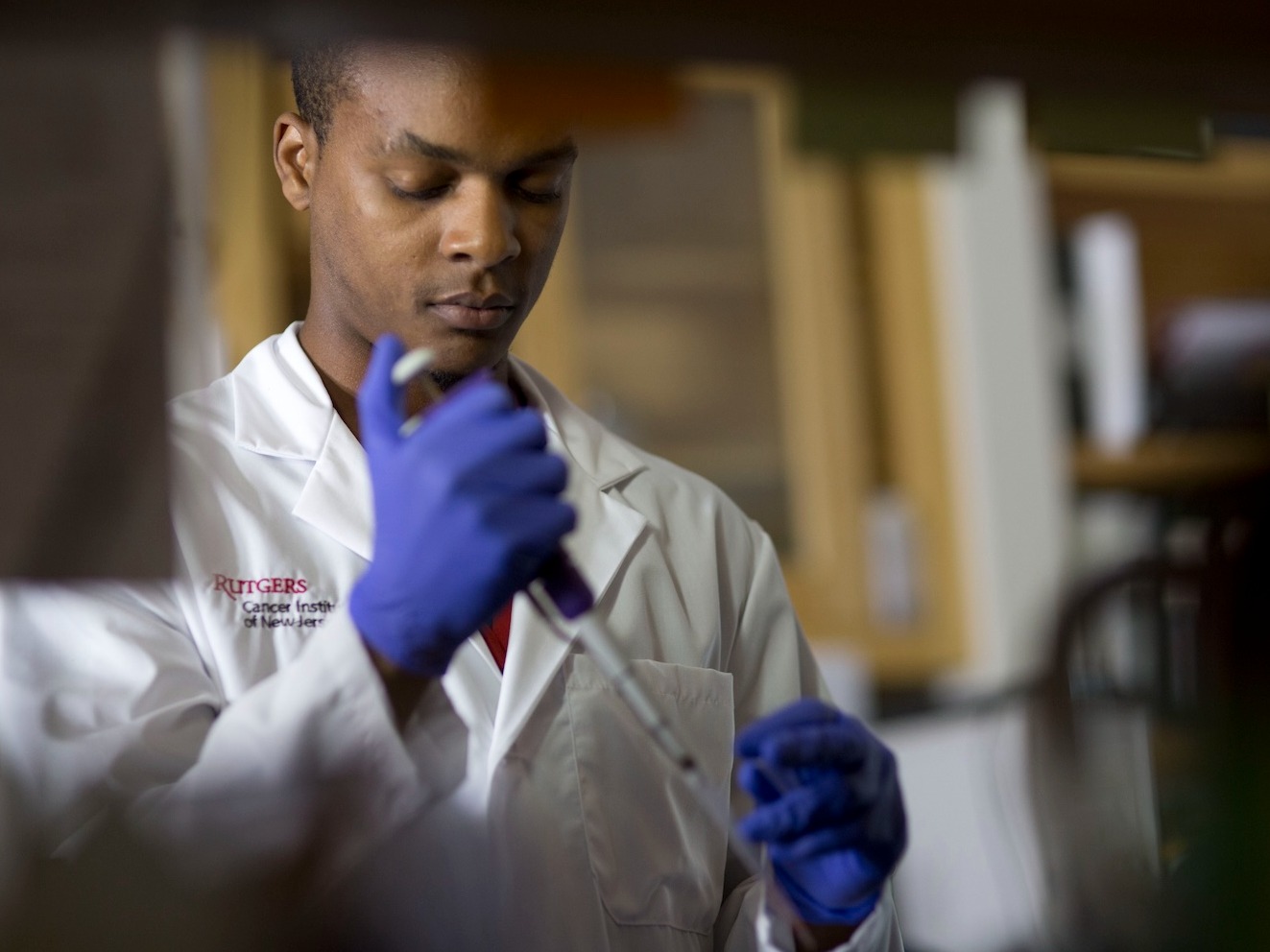
Consortia Establishment
The NCI designation also facilitates the formal establishment of research consortia, creating a network of collaborative institutions known as consortium cancer centers. Through these consortia, cancer centers can leverage diverse perspectives and resources, accelerating the pace of discovery and enhancing the impact of their research efforts. Learn More →
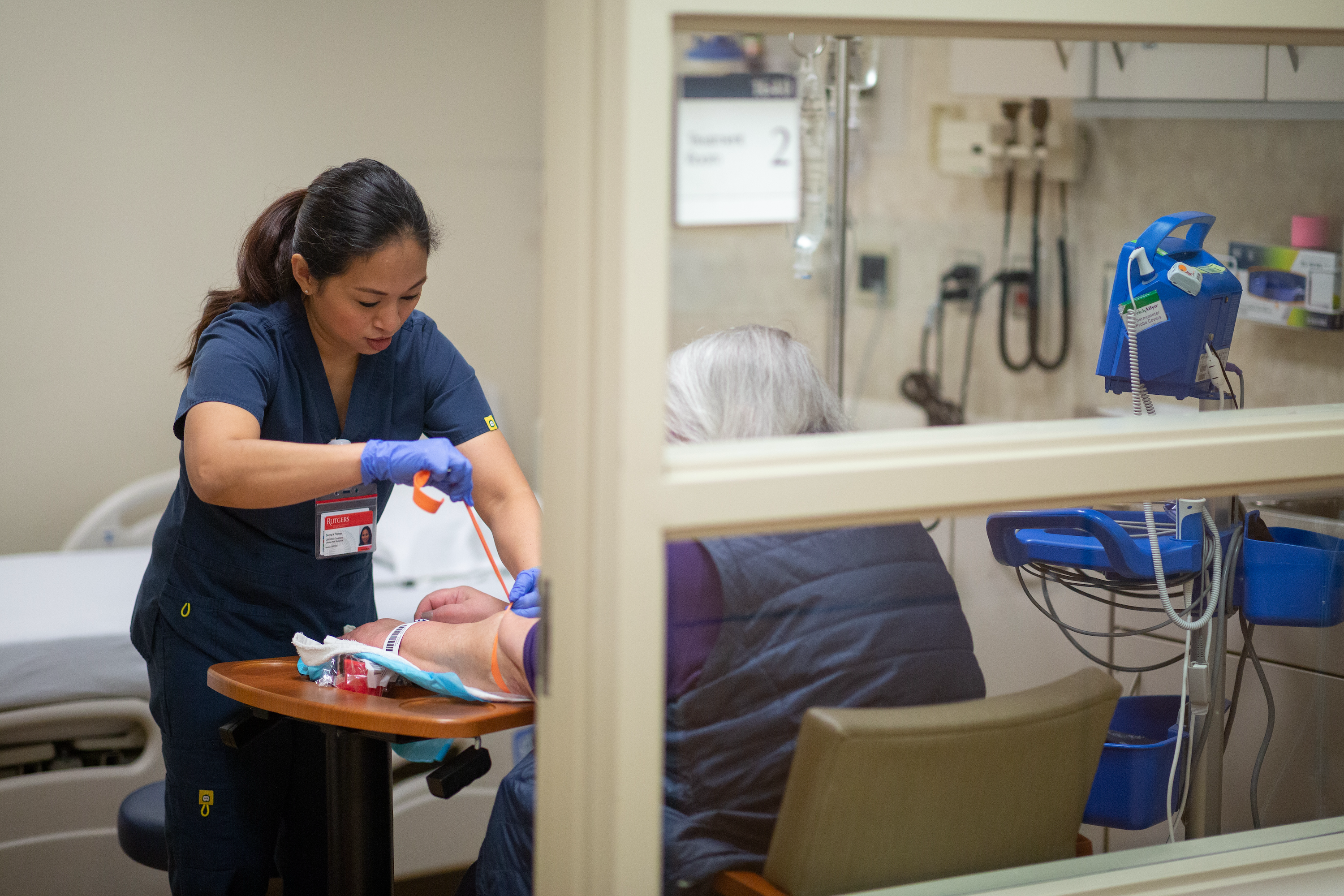
Continued Advancements in Cancer Care
By pooling resources and expertise, consortium members can conduct larger-scale studies, share data more efficiently, and access specialized technologies. This collaborative approach fosters innovation, allowing partners to tackle complex research questions and develop novel treatment approaches. Explore Patient Care →
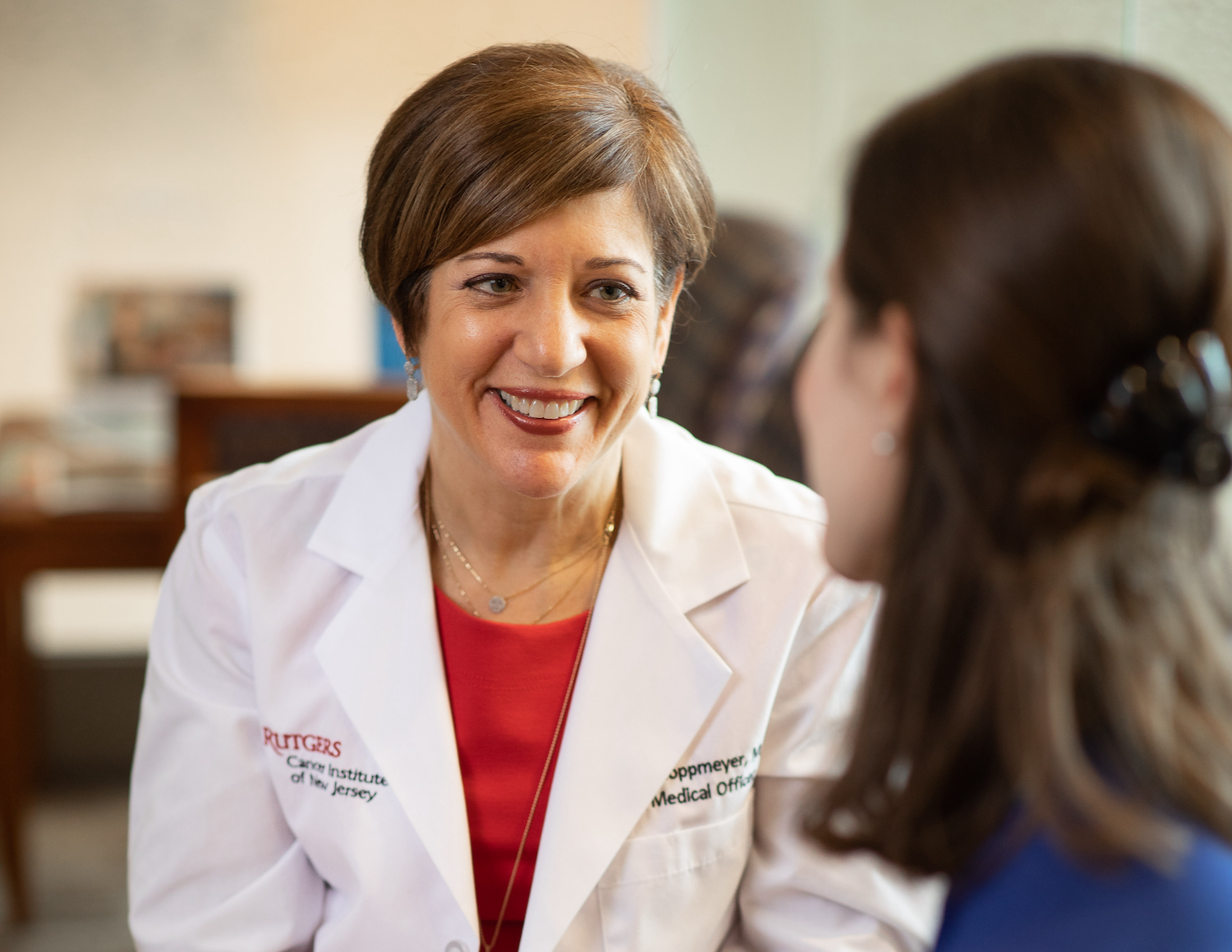
Recruitment of Expert Providers, Researchers and Educators
Comprehensive cancer centers attract top talent in various facets of cancer care, as the designation validates the institution's commitment to excellence and offers a magnet for leading experts seeking to contribute to cutting-edge advancements in cancer treatment and research. Find a Provider →
Partnership With Princeton University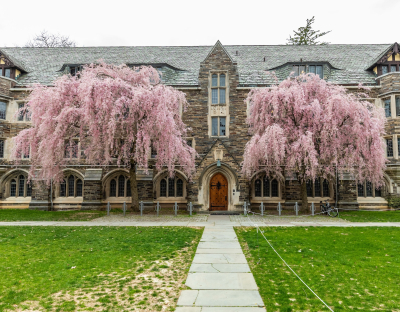
As New Jersey’s only NCI-designated Comprehensive Cancer Center, our consortium partnership with Princeton University is one of 16 in the nation, and is the only one in which the parent designated cancer center is located in New Jersey. Collaborative research between investigators at Rutgers and Princeton Universities has led to impactful scientific discoveries and clinical progress, many high-profile publications and garnered millions of dollars in federal research grants.
Why Choose a Comprehensive Cancer Center for Care?
Comprehensive Cancer Centers, like Rutgers Cancer Institute in partnership with RWJBarnabas Health, offer unparalleled advantages for cancer care. Patients not only gain access to cutting-edge therapies and clinical trials but also benefit from the expertise of various oncology specialists. With the ability to translate scientific discoveries into patient care, Comprehensive Cancer Centers optimize the development of new therapies. Along with advancing research and treatment, NCI Comprehensive Cancer Centers also are responsible for putting forth programs emphasizing cancer education, prevention and outreach that serve their states and catchment areas. The entire state of New Jersey is Rutgers Cancer Institute’s catchment area, as designated by the NCI.
Related Articles and Press
7 Reasons Why You Should Be Treated at an NCI-designated Comprehensive Cancer Center
Learn more about the advantages of being treated at an National Cancer Institute (NCI)-designated Comprehensive Cancer Center.
Rutgers Cancer Institute NCI Designation and RWJBarnabas Health Partnership
Dr. Andrew Evens discusses Rutgers Cancer Institute's NCI designation and what it means, as well as the partnership with RWJBarnabas Health.

